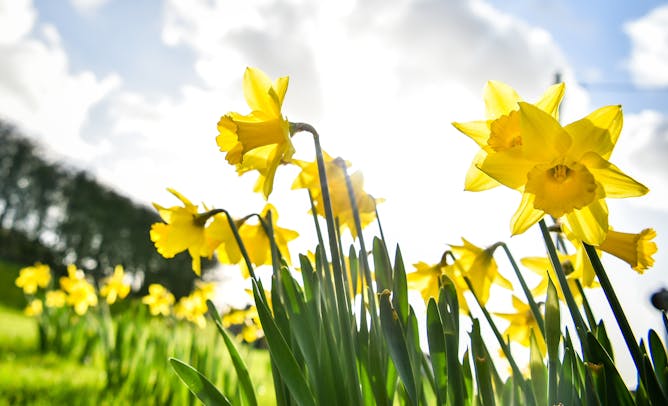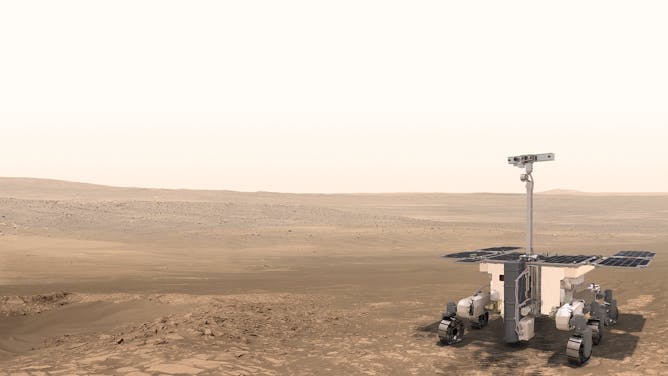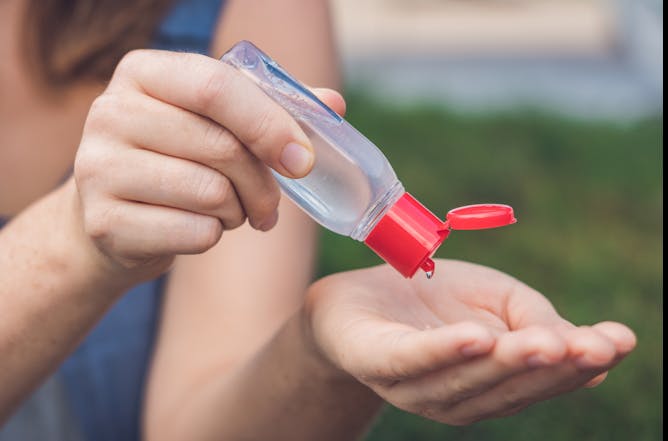|
|
|
Editor's note
|
|
If anything could get people in Britain to stop talking about the weather for a bit, the coronavirus pandemic is surely it. But while attention has been focused on the health crisis, the unseasonal warmth and heavy rain of the last few months has put many species in a tailspin.
This year saw the hottest ever January recorded on Earth. For many plants and animals in the northern hemisphere, it will have felt as if there had been no winter at all. But this is “the winter that climate change science has long been predicting”, according to Paul Ashton, head of biology at Edge Hill University. The unusually high temperatures will have benefited some organisms – autumn flowering plants like common ragwort could have
survived a frostless few months, while badgers and blackbirds will no doubt have gorged on the surplus earthworms that multiplied while the soil stayed wet and warm. For most species though, the careful adaptations they’ve evolved to survive the cold will now place them at odds with the rapidly changing
world around them. Small mammals have emerged weeks earlier than usual, often to a landscape where their natural prey are absent. Some plants that relied on low temperatures as a cue to start germinating will lie beneath the soil in stasis while a new season begins without them.
Elsewhere, coronavirus has disrupted the plans of NASA scientists, as the long-awaited ExoMars2020 mission to the red planet has been postponed. We’ll be bringing you everything you need to know about the pandemic as it unfolds, straight from trusted academic sources. You can stay up to date with all of our coronavirus coverage, and don’t forget to look out for our latest update from across The Conversation network later today.
|
Jack Marley
Commissioning Editor, Environment + Energy
|

|
|
Top stories
|

The sun shines through daffodils in full bloom near Tenby, Wales. February 1 2020.
Ben Birchall/PA Wire/PA Images
Paul Ashton, Edge Hill University
While many plant species fail to germinate, some mammals may wake up to a landscape devoid of prey.
|

The Rosalind Franklin rover.
ESA
Monica Grady, The Open University
Delay has turned space mission ExoMars2020 into ExoMars2022.
|

Alcohol-based hand sanitisers work best.
Elizaveta Galitckaia/ Shutterstock
Manal Mohammed, University of Westminster
It needs to contain at least 60% alcohol content to be effective.
|
Health + Medicine
|
-
Jeremy Rossman, University of Kent
Letting the virus 'pass through the community' is not a good public health strategy.
-
Wanda Markotter, University of Pretoria
Several questions about the origin of the outbreak remain with no clear data on what this was or if it was an animal source.
-
Peter Drobac, University of Oxford
Lessons from Asia can help avoid a catastrophe.
|
|
Politics + Society
|
-
Simeon Yates, University of Liverpool
We found that a lack of critical skills about the online environment matched up with lower levels of education and employment.
-
Umer Karim, University of Birmingham; Scott Lucas, University of Birmingham
What's been going on in Saudi Arabia?
-
Libby Sander, Bond University
The coronavirus outbreak could prove to be the tipping point for remote work arrangements to become the norm.
|
|
Arts + Culture
|
-
Thomas Black, University of Nottingham
Welshman Edward Lhwyd helped bring togethr Gaelic, Welsh, Cornish and Breton to show how language could connect people on a deeper level.
-
Lauren Alex O' Hagan, Cardiff University
Irish language and culture, not Guinness and Leprechaun costumes, were at the heart of early St Patrick's Day celebrations.
-
Elaine Farrell, Queen's University Belfast; Leanne McCormick, Ulster University
Many unwed Irish mothers-to-be travelled to America in the 19th century hoping for a new start
-
Hamza Mudassir, Cambridge Judge Business School; Kamal A Munir, Cambridge Judge Business School
The streaming giant will struggle to continue its share price march otherwise
|
|
Business + Economy
|
-
Alexis Stenfors, University of Portsmouth
As the sun sets on world markets, rumours of the death of investors' favourite safe haven have been much exaggerated.
|
|
| |
Featured events
|

|
Wivenhoe Park, Colchester, Essex, CO4 3SQ, United Kingdom of Great Britain and Northern Ireland — University of Essex
|

|
G10, Palmer building, Whiteknights campus, University of Reading, Reading, West Berkshire, RG6 6UR, United Kingdom of Great Britain and Northern Ireland — University of Reading
|

|
East Road, Cambridge, Cambridgeshire, CB11PT, United Kingdom of Great Britain and Northern Ireland — Anglia Ruskin University
|

|
School of the Arts, 19-23 Abercromby Square, Liverpool, L69 7ZG, United Kingdom of Great Britain and Northern Ireland — University of Liverpool
|
|
|
|
| |
| |
| |
| |
| |
|
|
|
|
|
|
|